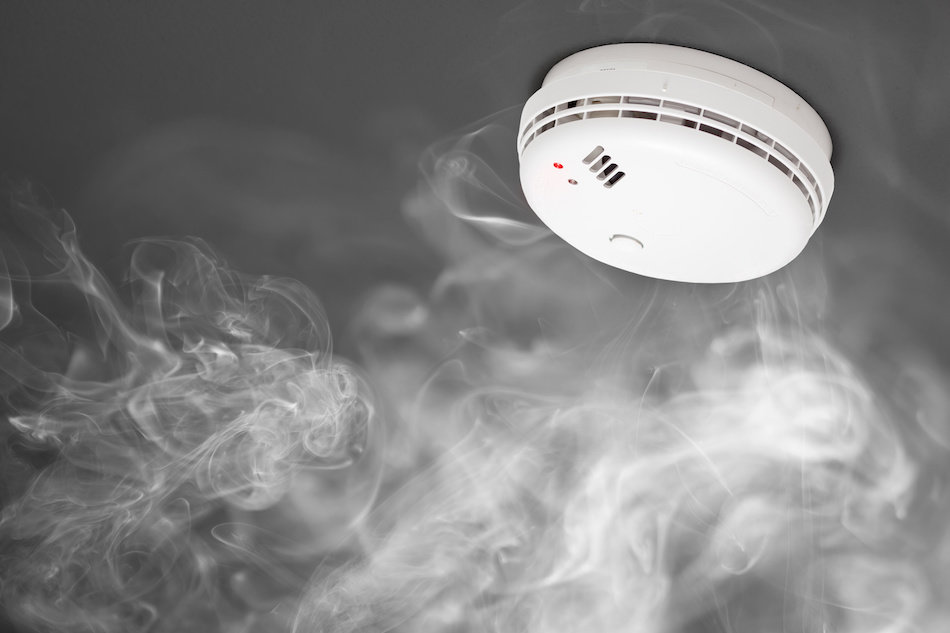Do You Know About These Home Safety Hazards?
Posted by Justin Havre on Thursday, January 31st, 2019 at 11:10am.
 Canadian residents may think that they are safe in their home but still be unaware of the serious safety hazards that may require their attention. Adults, young children and the elderly can all be at risk of injury or worse in those homes wherein homeowners may have neglected to pay attention to common home safety hazards.
Canadian residents may think that they are safe in their home but still be unaware of the serious safety hazards that may require their attention. Adults, young children and the elderly can all be at risk of injury or worse in those homes wherein homeowners may have neglected to pay attention to common home safety hazards.
Here are some common home safety hazards found throughout Canadian residences today.
Smoke and Fire Hazards
All Canadian residents should ensure that their smoke alarms are working properly as fires often start at night when people are sleeping. An operating smoke alarm can save lives. More than one smoke alarm may be needed and should be located in every room of the home and on every level. Smoke alarms need to be tested monthly and batteries replaced twice a year.
Homeowners should know what to do in the event a fire occurs in a home. It may be necessary to keep different types of fire extinguishers in a home depending on the cause of the fire. Residents should have and practice a home fire escape plan and know where to meet outside of the home.
Carbon Monoxide Dangers
Carbon monoxide gas is considered the “silent killer” as it is an odorless and invisible gas. Breathing in carbon monoxide can cause symptoms such as headaches, nausea, shortness of breath and more. From 2001-2007 in Ontario, 74 accidental deaths resulted from asphyxia from furnace fumes and vehicle exhaust.
Residents should install a carbon monoxide detector to protect occupants from this threat. Carbon monoxide alarms should be located outside every sleeping area and on each level of a home. As with smoke alarms, a carbon monoxide alarm needs to be tested at a minimum of once a month.
In many cases, and depending on the insurance company, home owners and renters may receive a discount on their homeowners insurance by installing smoke and CO2 detectors in their homes.
Injury From Household Falls
A common household hazard are injuries from falls. Wet floors, scattered toys and slippery stairs can increase the chances of slipping and falling. Minimize risks by:
- Stabilizing staircases with solid handrails and use safety gates when small children also reside in the home.
- Clearing outdoor steps of debris and securing mats with grip tape.
- Storing toys in areas outside of the general traffic path in a home.
These are only a few of the methods available to reduce the potential of slip and fall injuries in a home.
Common Poisons in the Home and How to Protect From Them
Poisons are far more common in homes that many people realize. Poisons can be found in chemical cleaners, fertilizers, pesticides and even in spoiled food. To protect themselves and other members of their household from poisons, many homeowners must taken an organized approach.
Start by placing chemicals out of reach from children and pets. Homeowners who leave chemicals in easy to reach cabinets can use child-safe locks to keep chemicals secure.
Pesticides and fertilizers are common poisons found in the garage. Pets left in the garage are at a particular risk for exposure to fertilizer, which sometimes smells tempting to pets. Placing fertilizers and pesticides on upper shelves can make the garage safer, provided that the pet does not have the ability to climb. Curious children who spend time in the garage may also be in danger. Keeping pesticides and fertilizers in well-secured containers can also help.
Another common dangerous chemical found in the garage is antifreeze. Antifreeze is attractive to children because it's a bright color. Pets and children find that antifreeze is sweet, so tasting it is tempting. Parents can protect their family members by keeping antifreeze in hard to reach places and by purchasing pet-safe antifreeze.
Sometimes the plants in the home and the yard can also put people at risk. Homeowners should familiarize themselves with all plants on their property. Unidentified berries can be a risk, so homeowners must make the effort to identify these berries.
Finally, spoiled food is itself a kind of poison that can make people sick. It's important for homeowners to go through their refrigerator and throw away spoiled food on a regular basis.
Keep Home Occupants Safe
Owners of homes in Tuscany may have to take additional steps to prevent common safety hazards, such as updating electrical wiring in older homes. Falls, potential fires and carbon monoxide emissions are only a few of the common safety hazards facing Canadian residents.
